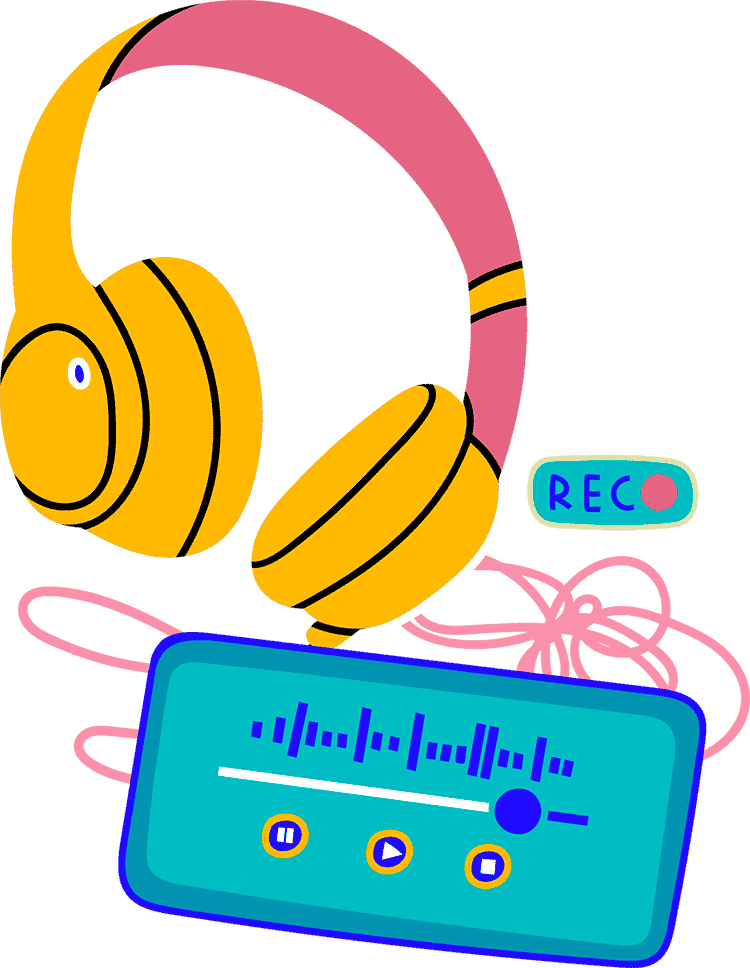Must-know stats for folks looking to create pretty much anything.
The podcast is on the rise among Black listeners in the US. There’s no doubt about it.
But that’s not all this post is about.
Below, we dive deeper into the newly released Black Podcast Listener Report to explore the importance of representation for Black audiences.
We consider what these listeners are asking for, whether they’re getting it and (spoiler alert) why even podcasts are so deeply impacted by the racism that shapes all popular media today.
We also explore what creators can do about it — so let’s dive in.

Massive popularity
The data shows that podcasts are hugely popular among Black listeners, with 77% saying they’d heard of podcasts and 36% saying they’d listened to one within the last month.
What’s more, consumption is on the rise. The number of survey respondents who had listened in the last week rose from 17 to 26% year over year — a massive 53% increase.
Frequent listeners are also devoting more and more time to their favorite podcasts.
Here are some stats that show this growth:
-
57% of monthly listeners are tuning in more than they did the year before
-
And 35% of weekly listeners are catching at least five hours each week

Long term investment
Just as we’ve seen in other studies we’ve shared, this growth and popularity appears to be more than a passing trend.
Looking at the data from Black respondents in the US:
-
17% of monthly listeners have been on board for three to five years
-
And 12% have been listening even longer
While it may be a relatively new form of popular media, it’s pretty clear that consumers are committed — and the podcast is here to stay.

Reasons for listening
Seeing this kind of commitment, it’s reasonable to wonder what keeps folks coming back for more.
Let’s take a look at the responses from Black listeners.
The five most popular reasons for listening were:
-
To learn new things (73%)
-
To dive into topics that interest them (73%)
-
To be entertained (72%)
-
To hear unique perspectives not covered by other media (70%)
-
And to relax (68%)
One significant theme that came up here, and several other times across this study, is representation.

The importance of representation
Of monthly listeners, 62% said they listen at least in part for exposure to folks that look and sound like they do — an unsurprising desire in the face of ongoing marginalization.
In fact, 51% of monthly listeners said it was at least somewhat important to them that podcasts have Black hosts, and 59% said they’d increase listening if there were more of them.
Within the same group, 60% said that it was important that podcasts include Black stories and perspectives.

Are these needs being met?
It’s great that we see growing interest among communities and listeners of all kinds — and that this includes Black folks living in the US.
But are we doing enough to diversify content and meet the needs of demographics so often marginalized in popular media?
Probably not.
Unfortunately, a massive 58% of monthly listeners said they are left wishing for more content around niche interests by and for Black voices.

Why the lack of representation?
In an interview with the Columbia Journalism Review, Berry Sykes (who founded PodcastsInColor.com) spoke to the shortage of Black-centred content in the podcast industry.
“You’ll see podcasts with normal white guys from regular backgrounds all over the place, but when you’re getting a black podcast on a network, it’s somebody from the world of entertainment or sports and YouTube or something like that,” she said.
“It’s always about the powers that be and what they’re familiar with. And they’re white.”
Author Chenjerai Kumanyika — who wrote the NPR-published essay “Challenging the Whiteness of Public Radio” — also spoke to this phenomenon of white “tastemakers.”
“If I want to get my story onto one of these really popular podcasts, it’s going to have to go through editors at Gimlet or editors at NPR or editors at Invisibilia,” he said.
“I’ve worked with all these people and had good experiences, but I’ve also been conscious that it wasn’t easy getting the story through there, and I was inevitably going through white people.”

The solution
Clearly, there’s a real problem here and we can’t pack a complete solution into a 200-word summary.
But this data and these opinions should be considered massively valuable to creators of all kinds.
If you’re looking to create a podcast, it’s important to ask yourself how you can combat marginalization and create a series with integrity that does right by your audience and benefits from diverse perspectives.
This can come down to:
-
Hiring hosts from BIPOC communities
-
Featuring guests that are usually marginalized
-
Not shying away from difficult topics when they’re appropriate for your podcast
-
Working with a production company that offers a diverse team
-
And actually featuring Black perspectives and themes (no virtue signaling)
Ready to dive deeper into inclusion and diversity? Check out this data on diverse audiences and this guide to podcast accessibility.



